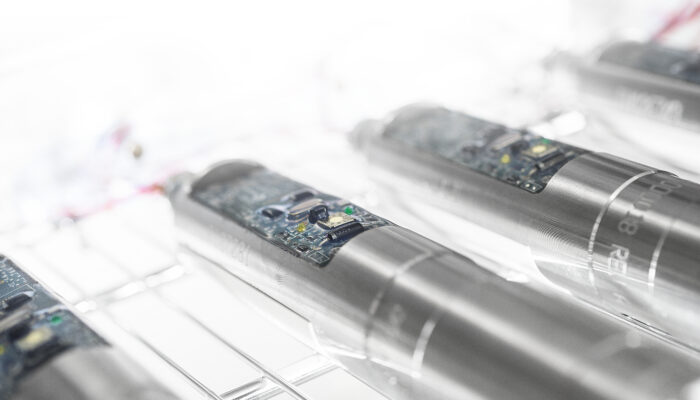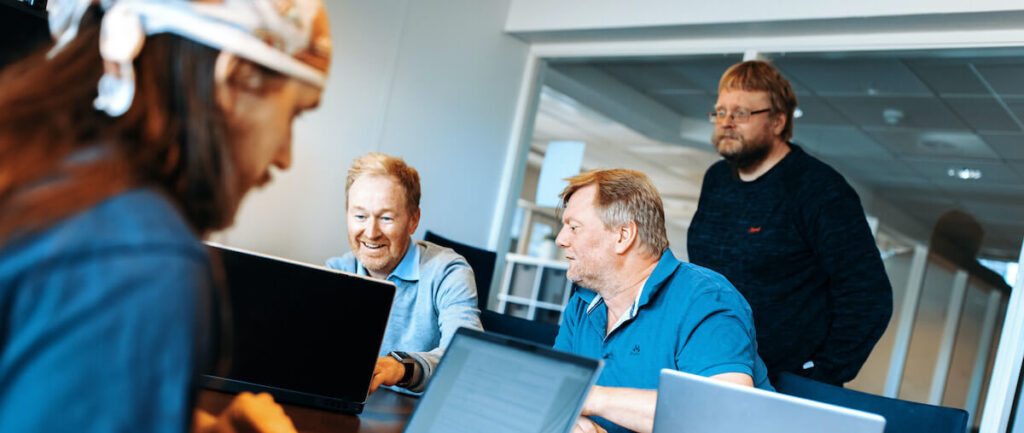Ferd contributes expertise, networking and capital when it takes an ownership stake in a company

As an active and long-term owner of the companies in which we invest, we seek to influence how they develop. In order to achieve their international potential, companies need a solid foundation that preserves their values and culture while they grow.

The first step is to put in place the right team, to spend time together and to find the appropriate balance with the company’s management and board. Once a shared foundation has been created, it is time to stake out the course that will ensure the company grows healthily and builds a clear position in the market.
A company’s values and culture are its glue and are an area that we work on systematically in order to develop and strengthen the companies in which we invest. This is especially important for the growth phase.
We also build a foundation consisting of various management tools in order to ensure there is structure and targeted work for the desired growth trajectory. The toolbox that is chosen varies and will depend on each individual company’s needs.
In order to dare to invest in new growth initiatives, it is crucial to be able to think long-term. As a long-term owner, we encourage and challenge the companies in which we invest to think big. This often involves them increasing their focus on internationalising their activities. We will then work with them to develop a plan for the strategic steps required for them to launch in the relevant markets.
There will be big individual differences from one company to the next, as is illustrated by two of our companies, Interwell and Unicus:
Interwell is a provider of high-tech well tools for the international oil and gas industry. The company’s products improve oil and gas extraction and reduce the associated carbon footprint, and this includes helping wells to be re-used and plugged more effectively. Its solutions are unique in the market and are highly valued by its customers.
When Ferd first acquired an ownership interest in Interwell in 2010, the company was still owned by its founders. We saw a company that had done extremely well on the Norwegian continental shelf with multiple products with international potential. Having an active owner such as Ferd on board created the conditions for it to internationalise its activities.
We worked with Interwell to produce a strategy with a three-year perspective, and as part of this we decided in which countries the company would set up activities. Interwell had exported its products a little before, and this formed the basis for the analysis that revealed in which regions the company should invest more extensively. The plan was very focused, with clearly defined goals for the UK, the Middle East, the USA and then Asia.
It was important to frequently test the plan to ensure that the level of risk involved was acceptable, and promising indications led to Interwell gradually building up its activities in the markets concerned.
Today, Ferd is Interwell’s main shareholder, and the company has become a leading global supplier.
The Norwegian company UNICUS employs people with autistic spectrum diagnoses who have IT expertise, and was founded on the basic idea that everyone is good at something, and so no-one deserves to be left out of working life. Using the positive characteristics of people with autistic spectrum diagnoses as their competitive advantage, the company was profitable from the very first year it was set up, 2009.
UNICUS was one of Ferd Social Entrepreneurs’ first investments. The idea was simple, but how could it be translated into good business?
While initially UNICUS was a company to which we had given financial support, we have since 2016 provided growth capital and contributed as an active owner. Ferd has good pro-bono partners who contribute their expertise to our social entrepreneurs, and this is also something we contributed to UNICUS.
We have worked on building structure and professionalising its activities. The method we have used is based on increasing measurement and evaluation activities and using the data this produces for management purposes. This approach ensures that we always add to the business more of what works and less of what does not. Our aim is to maximise the company’s social impact.
The process has helped UNICUS to expand from having a single office in Oslo to having two offices in Oslo, one office in Sweden, and one in Finland – all of which are profitable and home to around 25 employees.
The opportunities for further expansion open to UNICUS are significant. Ferd therefore last year contributed further equity and is today the proud main shareholder in UNICUS. Its model is both scalable and transferable to other companies that see opportunities where others see limitations.

Unicus is a different type of consulting company that provides high-quality IT services in testing, quality assurance and data science. What makes Unicus different is that all its employs have Asperger’s. While some regard this as a challenge, Unicus sees it as an opportunity. Photo: Unicus.